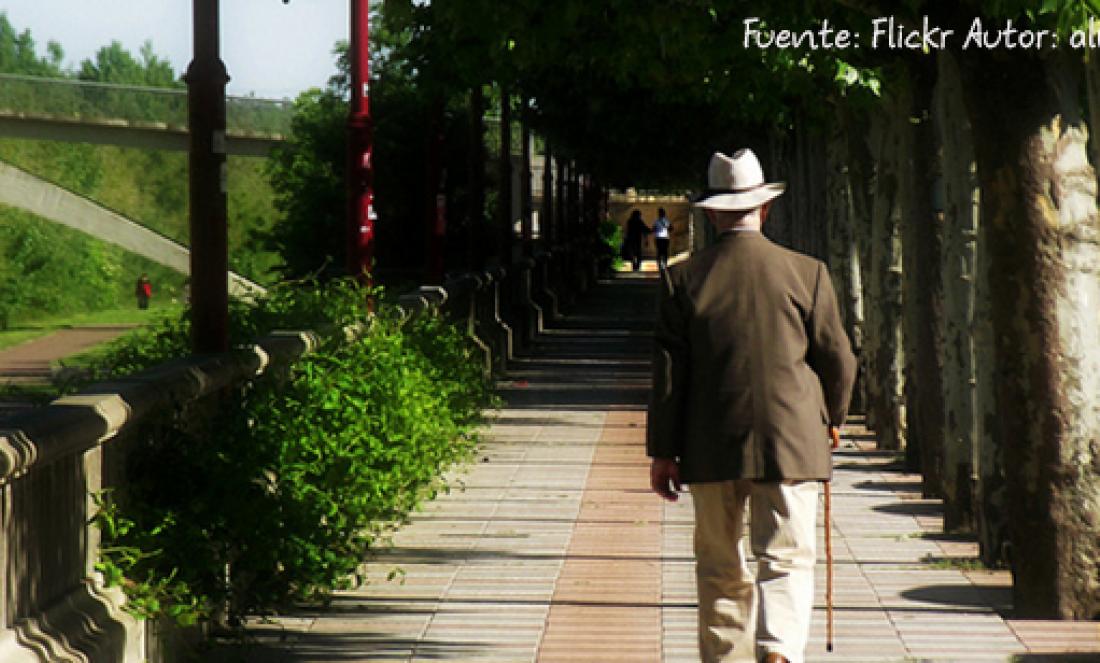
Heat wave.... We have a problem
Heat, especially when associated with humidity, further increases the risk of mortality. In the last two summers and according to health sources, high temperatures caused the death of 35 people. Visits to the emergency room by the elderly in summertime increase by 20-25%.
The people who accumulate the most risk of death or illness are the elderly, the very young, the mentally ill, Alzheimer's patients, immobilised people, cardiac and respiratory patients, to which we should add patients with fever or people who are overweight.
Heat first provokes a loss of liquids and we have to know that ageing causes a difficulty in regulating the response to heat.
When perspiration systems act more than the body is used to, they end up weakening the body. We will find ourselves in two situations:
- Heat exhaustion: in which there is a significant increase in sweating, muscle cramps, weakness, dizziness, nausea, rapid and weak pulse associated with headache.
- Sunstroke: in which there is already an increase in temperature, red or dry skin, lack of perspiration, and a state of confusion or unconsciousness.
If the main users of health services are the elderly, we must be able to redirect and adapt the services and needs of the elderly because they are the main users of the health system.
- Advice on how to deal with the heat:
- Never leave anyone in a closed car, even for a short time, especially children and elderly people.
- Drink liquids between 2 or 3 litres a day, especially water and juice. An ideal drink can be oral serum, homemade serum or drinks of a sporting nature. Do not drink alcoholic drinks with caffeine or excess sugar. They should not be too cold either, as they cause stomach pain. You should drink without being thirsty and this is a piece of advice that should be extended to all Gerontological Centres that have people in a situation of immobilisation or with neurodegenerative diseases.
- If there is intense activity, it should be concentrated at the beginning or end of the day. Shopping should be included in this activity.
- Frequent breaks in any activity.
- Clear, light and loose clothing. Avoid fibres and basically use cotton (the denser the better). It is important to cover your head.
- Photo-protection: in general, 50+ protection on the face and 20-40 on the body. Wear approved sunglasses during the periods of greatest risk: between 12 and 5 pm.
- Eat light, frequent meals rich in salads, fruit and yoghurt. Eat five small meals a day containing fruit and vegetables, avoiding fried foods and sausages because they are rich in salt and, as well as causing thirst, can increase body sweating and fluid loss.
- The refreshing bath or shower should be done slowly and without sudden temperature contrasts, especially during periods of digestion: a prudent time could be two hours.
- Check frequently how children and elderly people are doing, especially if they are alone or dependent.
- Consult a doctor if there are risks between the medication and the heat that the elderly person takes: diuretics, hypotensives, antihypertensive drugs in general and drugs used for psychosis or sedatives. All these drugs can make our organism somewhat lazy in its responses to hyperthermia.
- If symptoms of exhaustion appear: go to a cool, shady place, rest and drink liquids.
- During the day close windows and darken the house, open and air the house in the evening and at night.
- The fan can help to cool us down by moving air. If the heat is repeated, the option will be to enter the culture of home air conditioning. In any case we must be alert to use community facilities, especially cinemas, restaurants, shopping areas, savings banks, banks ... that have air conditioning.
- When faced with venous insufficiency: Avoid the sun, tight belts or garters, hot water baths and crossed legs. It is best to walk on wet sand or on the shore.
- Always put your legs up when resting.
- Other tips for the summer
- Travel: Photocopy of medical report, reservation medication.
- Driving vehicles: Do not drive at peak times, or at night, or on poorly lit roads.
- Diarrhoea: Banal: Astringent diet + oral serum (1 litre of water + 4 soup spoons of sugar + 3-4 teaspoons of table salt + 1 spoon of bicarbonate + 1 or 2 pieces of lemon)

Add new comment